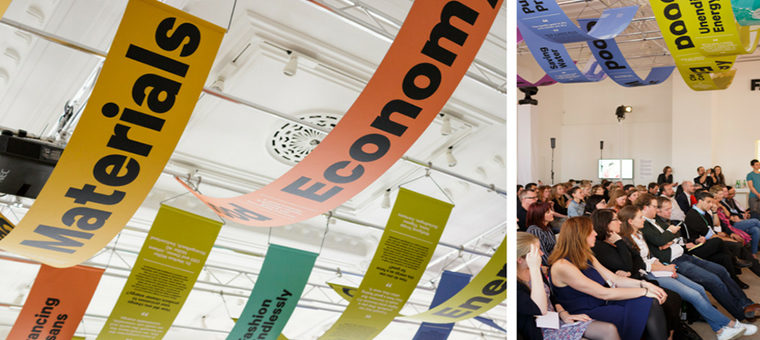
Fashion for Good is a lot of things all together, and even more: we’re talking about a seamless approach towards the future of fashion, in many forms. Including an early-stage accelerator (the Accelerator Programme), a global community, a special program for late stage companies (the Scaling Programme), and exhibition, consider this a “global initiative that’s here to make all fashion good“. Supported by innovative Impact Hub in Amsterdam, Plug and Play Tech Center in Silicon Valley, and a worldwide network of changemakers, including Fashion Technology Accelerator, Fashion For Good is indeed a powerful community here to stay.
Yesterday, we’ve attended the Plug and Play Demo Day for the first batch of startups that graduated off the acceleration program Fashion For Good launched later this year, and we’ve had the chance to meet and speak with the team in the Amsterdam hub. This is what they’ve told us about the Fashion for Good project and its implications for the market and industry. Have a good reading!
Hello team, what is the outlook for the fashion industry from your perspective?
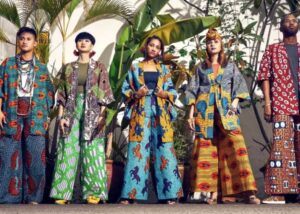
The fashion industry has a clear opportunity to act differently, pursuing profit and growth while also creating new value for society and therefore for the world economy. It comes with an urgent need to place environmental, social, and ethical improvements on management’s agenda.
In recent decades, the fashion industry has been an engine for global development. One of the world’s largest consumer industries, generating €1.5 trillion in annual apparel and footwear revenues in 2016. It employs around 60 million people along its value chain. To continue the growth trajectory, the fashion industry needs to address its environmental and social footprint.
The earth’s natural resources are under pressure, and the fashion industry, although not the most obvious contributor, is a considerable one. Social conditions—also in the fashion industry—are far from those set forth in the United Nations’ goals for sustainable development. With current trajectories of production and consumption, these pressures will intensify by 2030 to the point of threatening industry growth itself.
How fashion can be good nowadays?
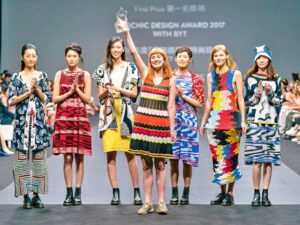
Good fashion is when customers know the garments they’re buying are a result of a process that creates good at all stages. Everything circular, everything good including the biological processes, the material, the technology, and the waste. Good fashion is fashion produced with Good Materials (safe, healthy and designed for reuse and recycling), in a Good Economy (growing, circular, shared and beneficial to everyone), using Good Energy (renewable and clean) and Good Water (clean and available-to-all), by workers living Good Lives (living and working conditions that are fair, safe and dignified) and giving us Good Lives. Good fashion puts the power to make good fashion in everybody’s hands: customers should ask for it, designers want to make it and brands want to produce it.
There have already been incremental changes with things like recycling and several individual initiatives and efforts have been set up to try and secure good fashion, but nothing that is sufficiently transformative. Focusing on less bad, like recycling, won’t ultimately bring good. That’s one thing that makes Fashion for Good so different – it aims to do good while also complementing the existing efforts.
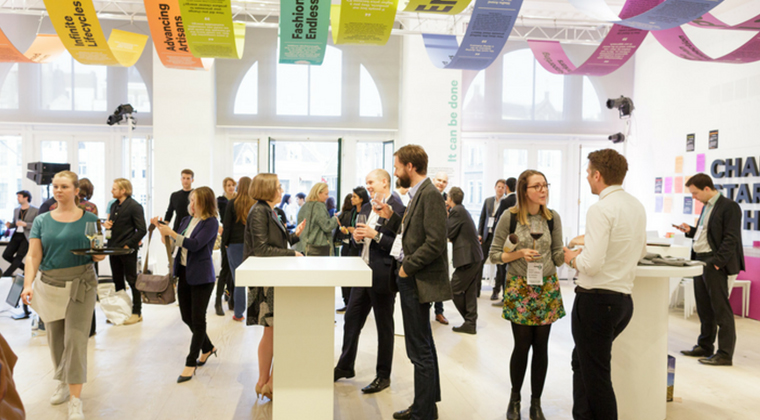
Do you see main differences from market to market in Europe?
Sustainability in the Netherlands ranks high on the agenda of the local fashion brands and Amsterdam has established itself as the sustainable and circular fashion capital in Europe. This is of course one of the reasons why Fashion for Good has located its headquarters here in Amsterdam. Further, we observe a strong sustainability movement in fashion in the Nordics.
Sustainability is a big catch phrase but the market is slowly reacting. Tough to predict, we know, but how the future looks like in your opinion?
With resources becoming even scarcer, the industry will face rising costs from labor to materials and energy. Based on conservative projections, fashion brands’ profitability levels are at risk in the range of at least 3 percentage points if they don’t act determinedly, and soon. The facts show a clear need for acting differently. The good news is that by changing practices, the industry can both stop the negative impact and generate a high amount of value for society, while also protecting profitability. It is estimated that the world economy would gain about €160 billion annually if the fashion industry would successfully address those environmental and social issues. As of today, the sustainability ‘pulse’ of the industry is weak. The newly developed global Pulse Score, a health measure for the sector, is only 32 out of 100. The industry is not yet where it could and should be.
Fashion brands with targeted initiatives will be best placed to improve their environmental and social footprint and counteract the rising costs of apparel production. These initiatives will improve the overall industry Pulse, raising the average and creating inspiring best practices for the low performers to learn from. However, even if the entire industry caught up to the best practice front- runners, it would not be enough. Under optimistic and ambitious assumptions, only less than half of the €160 billion could be captured. The industry needs coordinated action beyond today’s solutions.
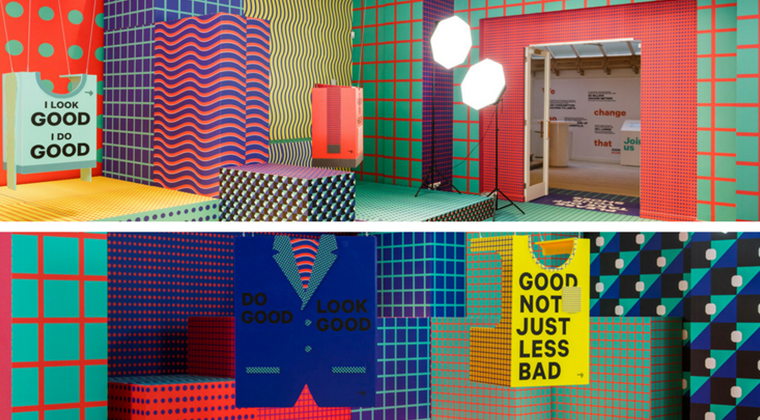
You have a specific program for startups as an early-stage accelerator and a late-stage offer. How do you select the projects you work with? What are your criteria of selection, and what you specifically provide to your startups?
Overall our main selection criteria for the Accelerator Programme as well as for the Scaling Programme are on the hand a measurable and significant sustainability impact (e.g. water, energy, chemical savings as well as labour condition improvements) and on the other hand a commercially viable business case. Only if innovations/ startups provide a positive business case to their customers, there is a chance that they will be taken up at a big scale where they can unfold the impact that they are actually capable of.
In the Accelerator Programme, which is run by Silicon Valley Accelerator Plug and Play we target startups that are at an earlier phase in their development. They are offered a free 3 monthprogramme during which they have access to office space at Fashion for Good and mentorship sessions. Most importantly they are connected to industry leaders and brands providing them with an access to business development opportunities, licencing, but also strategic investments or acquisition opportunities At the end of the programme, the startups have advanced in the development of their product and business model, made relevant contacts in the industry and potentially even received an investment from Plug and Play/ Fashion for Good.
In the Scaling Programme we have dedicated End to End Impact Managers that actively scout and perform thorough Due Diligences on innovators in the areas of raw materials, dyeing, cut/make/trim and end-of-use. If an innovator has passed the different stage gates and is accepted into the programme they will receive 18 months of bespoke, hands-on-support. FfG will help the innovators with 3-4 specific challenges they need to overcome in order to scale up their business. These milestones/ challenges are different for every innovator and FfG helps to solve them by providing access to capital, expertise and customers.
We are glad to be in a partnership with you and hope to do more together in the future. Could you please let our readers know about the reasons behind the choice of selecting FTA as one of your partners?
Fashion for Good is proud to have Fashion Technology Accelerator Milan as a partner. From the first point of contact we were impressed by FTA’s hands on mentality, knowledgeable expert and mentor network, startup portfolio and its philosophy of providing tailored industry solutions. We are looking forward to expanding our future collaboration with FTA and believe that jointly we can shape the future of the fashion industry.

Giusy Cannone is Chief Executive Officer of Fashion Technology Accelerator.
She is the reference point for FTA’s corporate projects, also creating business connections for startups in the Acceleration Program and mentoring participants of our Masterclasses,